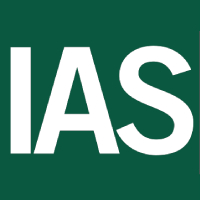
IAS adds two new accreditation programs covering medical devices testing and lead analysis
![]() International Accreditation Service (IAS) accreditation process provides objective evidence that an organization operates at a high level of organizational, legal and technical standards. IAS bases its programs on internationally recognized standards in order to ensure worldwide acceptance of your accreditation.
International Accreditation Service (IAS) accreditation process provides objective evidence that an organization operates at a high level of organizational, legal and technical standards. IAS bases its programs on internationally recognized standards in order to ensure worldwide acceptance of your accreditation.
The accreditation criteria have been developed by IAS to provide all interested parties with guidelines for implementing performance features of the applicable standards referenced in the accreditation criteria. The criteria were developed following public hearings conducted by the IAS Accreditation Committee. IAS recently added two new accreditation programs covering medical devices testing and lead analysis.
U.S. FDA ASCA Program
 The U.S. Food and Drug Administration (FDA) has recognized IAS under the Accreditation Scheme for Conformity Assessment (ASCA) pilot program to accredit testing laboratories that perform premarket testing for medical device companies. In this program, IAS will accredit testing laboratories using the standard ISO/IEC 17025 and the ASCA program specifications.
The U.S. Food and Drug Administration (FDA) has recognized IAS under the Accreditation Scheme for Conformity Assessment (ASCA) pilot program to accredit testing laboratories that perform premarket testing for medical device companies. In this program, IAS will accredit testing laboratories using the standard ISO/IEC 17025 and the ASCA program specifications.
Relying upon international conformity assessment standards and a set of FDA-identified ASCA program specifications, the pilot is intended to increase consistency and predictability in the FDA’s approach to assessing conformance with FDA-recognized consensus standards and test methods eligible for inclusion in the ASCA Pilot in medical device premarket reviews. Ultimately, the ASCA Pilot is intended to help the FDA ensure patients have timely and continued access to safe, effective, and high-quality medical devices.
EPA National Lead Laboratory Accreditation Program
 IAS accredits laboratories for recognition by the Environmental Protection Agency (EPA) National Lead Laboratory Accreditation Program (NLLAP) as being capable of performing adequate analyses for lead in paint films (chips), dust and soil samples. The NLLAP is an EPA program that defines the minimum requirements and abilities that a laboratory must meet to attain EPA recognition as an accredited lead testing laboratory. EPA established NLLAP to recognize laboratories that demonstrate the ability to accurately analyze paint chips, dust or soil samples for lead.
IAS accredits laboratories for recognition by the Environmental Protection Agency (EPA) National Lead Laboratory Accreditation Program (NLLAP) as being capable of performing adequate analyses for lead in paint films (chips), dust and soil samples. The NLLAP is an EPA program that defines the minimum requirements and abilities that a laboratory must meet to attain EPA recognition as an accredited lead testing laboratory. EPA established NLLAP to recognize laboratories that demonstrate the ability to accurately analyze paint chips, dust or soil samples for lead.
NLLAP ensures that participating laboratories have met EPA requirements and demonstrated the capability to accurately analyze paint chips, dust, or soil samples for lead. All laboratories recognized by EPA under NLLAP are required to undergo on-site assessments conducted by an accreditation body participating in NLLAP (like IAS), and to successfully perform on a continual basis in the Environmental Lead Proficiency Analytical Testing (ELPAT) Program. The ELPAT is the EPA-approved laboratory performance proficiency testing program administered by the American Industrial Hygiene Association to ensure that laboratories continue to accurately analyze samples for lead.








